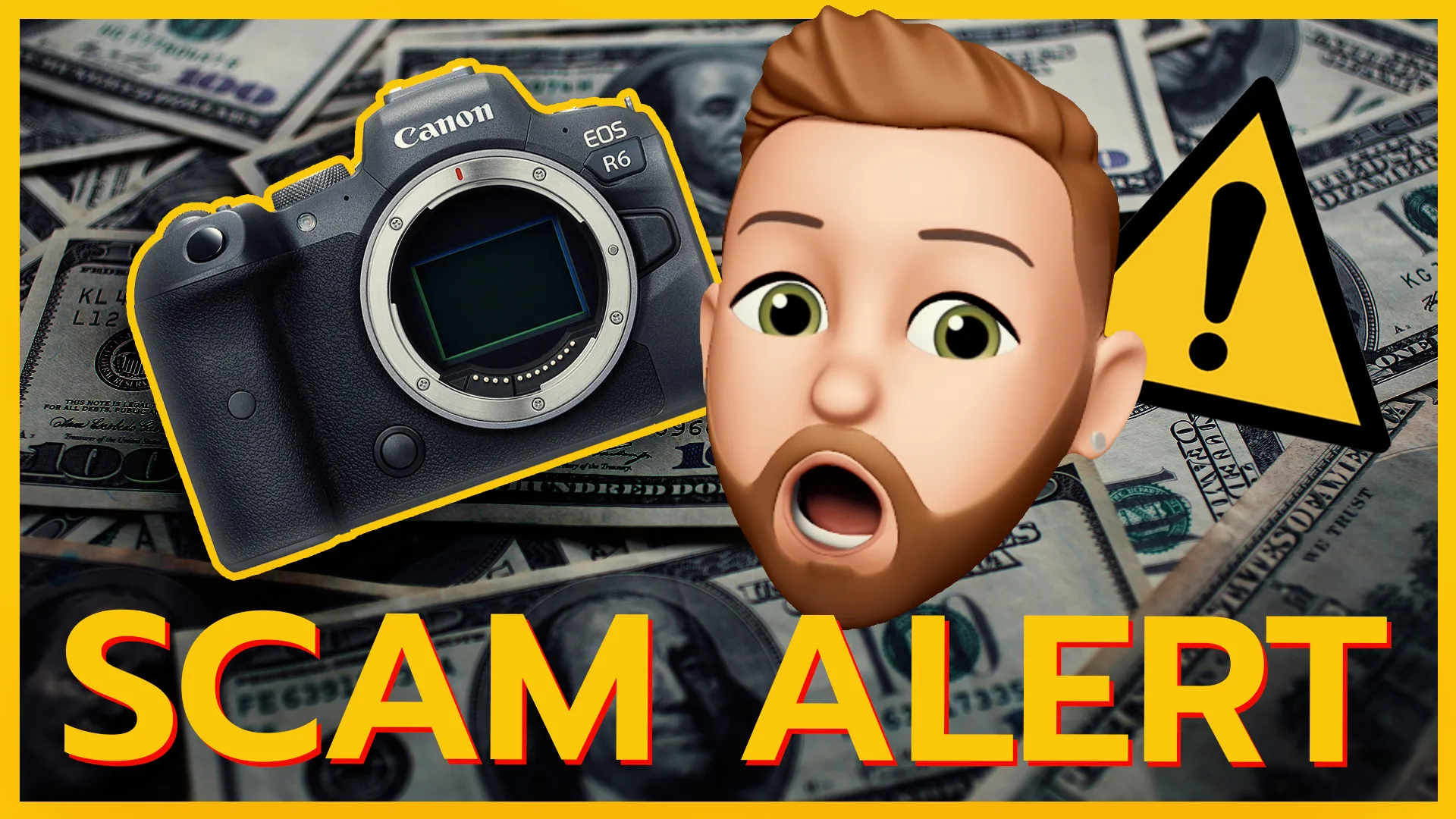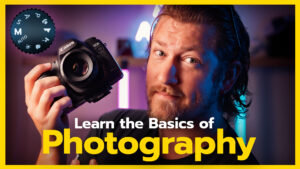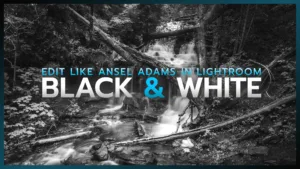Beware This New Photography Scam
Unfortunately, if you use the internet for work, you probably already know that new scams and scammers pop up every day. Recently, I’ve seen the rise in popularity of a new scam targeting photographers. I don’t want to see anyone, especially other photographers, being scammed out of their hard earned money.
If you’ve ever heard of the check scam, this is a pretty similar beast. In this post I’ll share 10 Red Flags you need to look out for to avoid being scammed. As always, check out the video below, or if you enjoy reading, continue scrolling!
What is the Check Scam?
The check scam has been around for a long time, probably as long as the check itself. To better spot this new photography scam, it’s important to understand the old check scam as well.
So what is the check scam? Say you’re selling a good or a service. I potential client will approach you and pay for your good or service with a check. This client will over-pay hundreds or thousands of dollars, and ask for a refund, typically in cash. You proceed to give them a refund… only to find out days later that the check has bounced for insufficient funds. Now the client has disappeared and so has your hard earned money. This is the basics of the check scam.
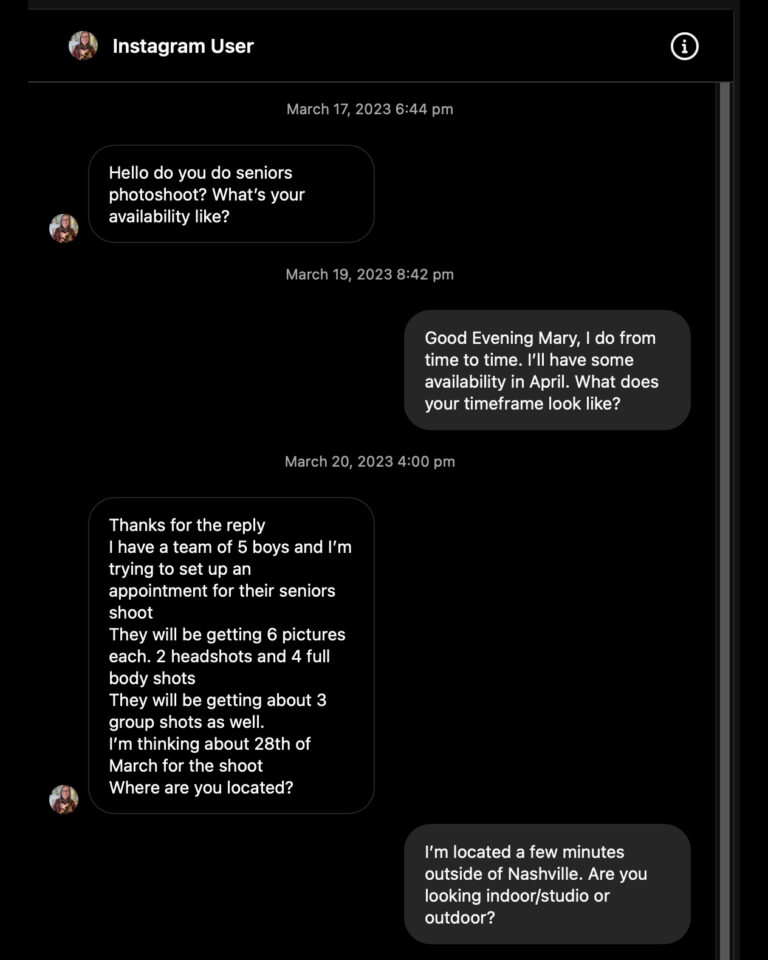
Am I Being Scammed?
This new scam that’s targeting photographers is quite similar to the check scam. Now that you understand how the check scam works, you’ll have a better chance of spotting this new one faster. Here’s how it typically works.
A new potential “client” will reach out to you via email or social media to see if you’ll do a creative service for them, like photography or videography. Everything will seem normal at first. You’ll get a few details about the project and the “client” will be ready to pay you. Awesome right? Who doesn’t love being paid for their creative work?
They will wire the funds via online bank or money service like PayPal, Zelle or even a check if they’re feeling a little nostalgic. Again, you’ll be over-paid for the photoshoot and asked to refund some of the money to the client, or to a secondary scammer.
After refunding the money, the scammer’s payment will not clear, but yours will, and your money will be long gone. Sounds a lot like a digital version of the check scam, doesn’t it?
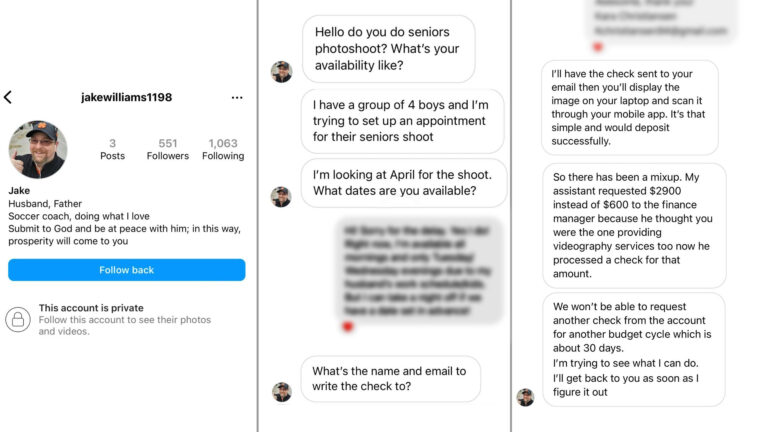
How to Avoid Being Scammed
I believe this scam is making a comeback because younger generations aren’t as familiar with checks, or the check scam. If you are, consider yourself a step ahead!
Photographers, videographers and other creatives have to work hard for their income, especially when their just starting out. Sadly, scammers know this, and are trying to take advantage of new photographers. (You can see in the screenshot above, the last time this was attempted on me, before I called them out for being a fraud.)
To help you better avoid being scammed, I’ve made a list of 10 Red Flags to help you spot a potential scam.
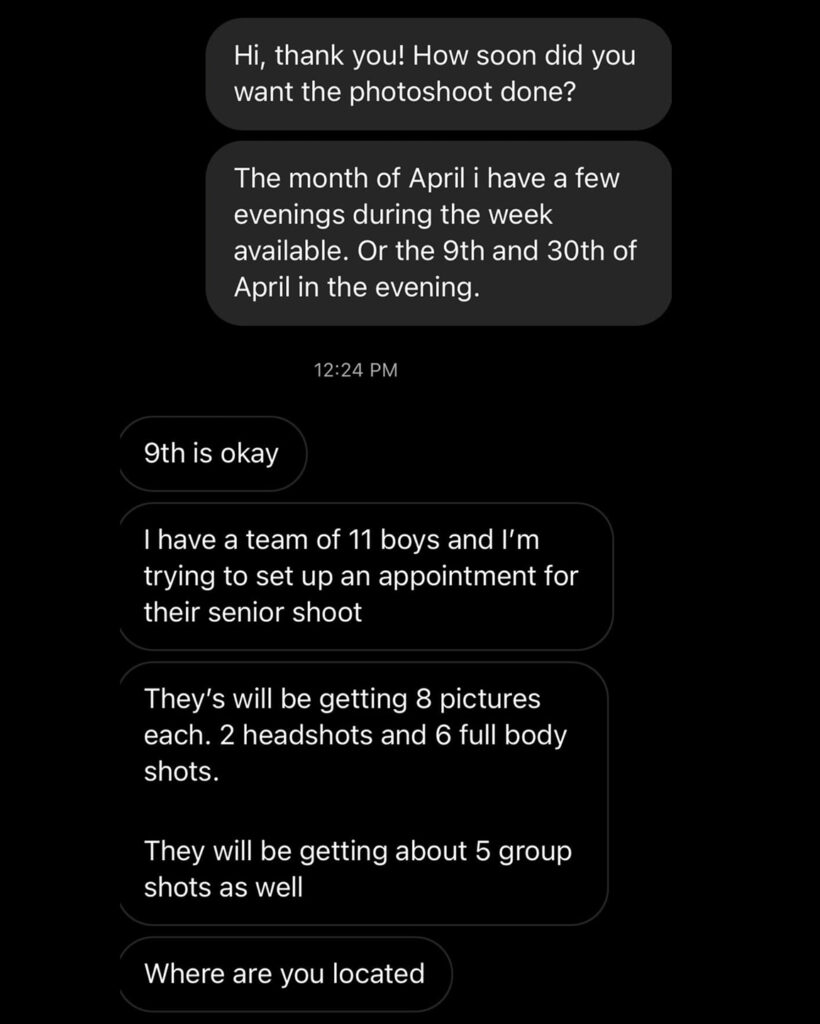
10 Red Flags to Spot a Scam
So to help you avoid being scammed, I’ve made a list of my top 10 Red Flags to help you spot a potential scam.
1. Bad Grammar
I’ve found that most of these scammers are targeting photographers from primary English-speaking parts of the world. And the scammers typically don’t speak English well or are using a translation tool Google Translate. There’s nothing wrong with English as a second language, but paired with other Red Flags, it could be a scammer.
2. New or Incomplete Profiles
Now you weren’t born yesterday, but you scammer may have been. Keep an eye out of new or incomplete profiles. Poor quality photos or the lack of any profile photo may be a clue that your “client” isn’t real.
3. Devil in the Details
Have you received a message identical to the screenshot above? Hundreds, if not thousands of other photographers have received the same copy & paste scam photography assignment. While it seems real, when you ask for more details the scammer tends to get confused or isn’t able to provide the information you need.
4. No Phone Calls
This is a BIG Red Flag. You scammer with typically refuse to speak over the phone or via any other method of communication (other than the one which they initiated the conversation). Always speak to clients over the phone to assure it’s a real person.
5. Avoiding Questions
If there’s a lack of clarity, you’ll probably have questions for your potential client. What’s the Budget? Location? Timeline?
When you start asking questions, typically the scammer avoids a clear answer. They’ll likely copy and paste the same details repeatedly.
6. The Robot
Robotic answers is another red flag. These scammers like to go with tried and true scenarios. They’ll likely copy and paste the same details repeatedly, even if you ask different questions. If it feels off, it likely is a scam.
7. Eager to Pay
We all love getting paid, right? As a photographer or creative person, you’ll sometimes have to put in a little extra work to get paid by a client. It’s such a relief when the client is quick to pay… but sometimes it’s too good to be true.
8. The Over Pay
Here is the scam in a nutshell. If your client has over-paid you, it’s a pretty cut and dry scam. Again, if it feels too good to be true, it probably is. This is the most important step in the scammer’s plan, and should be a HUGE Red Flag.
9. It’s for a “Friend”
And it’s BS. It’s another common tactic used by social media scammers to get your money. If they say it’s for a friend, family member or relative, it’s usually a load of crap. “I’ll pay, but it’s for XYZ relative” is a common scam to see, especially on Facebook Marketplace when selling goods. Keep an eye out for this trick if you’re selling camera gear!
10. Anger Management
If you’ve never angered a scammer for calling them out as a fraud, buckle up! You’re in for a wild ride on a slip-n-slide of profanities.
Beware Photography Scams: Conclusion
Knowing is half the battle of not being scammed. Remember to trust your gut, because if something feels off, it most likely is better to play it safe. Scams and scammers suck, and I want you to have all the knowledge to keep yourself and your income safe.
If you learned a thing or two, be sure to Subscribe to the Run N Gun Photography Channel, and of course, subscribe to the blog for more photography articles! Also be sure to check out my Official Run N Gun Shop for Lightroom Presets, LUTs and other Photography Assets.

